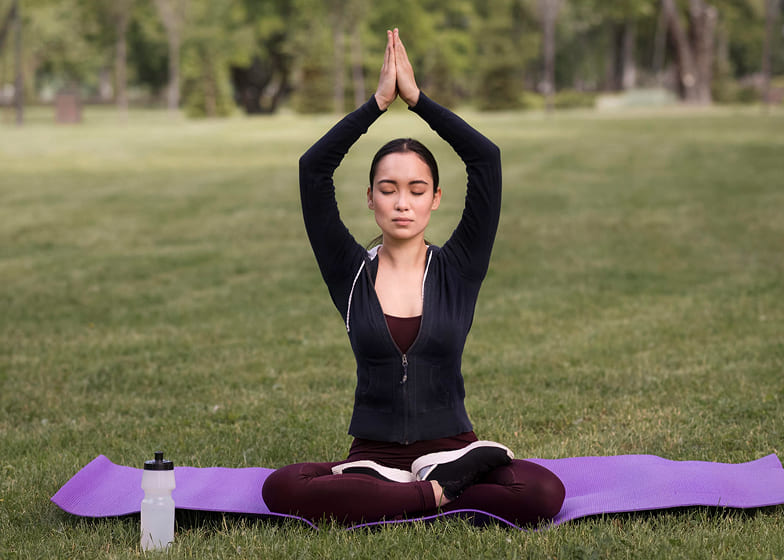Maintaining a healthy work-life balance is essential for both mental and physical well-being. In today’s fast-paced world, many people struggle to juggle professional responsibilities with personal life, leading to stress, burnout, and health issues. Achieving balance allows individuals to recharge, reduce stress levels, and enhance overall productivity. When your work and personal life are in harmony, you can focus better at work, enjoy meaningful relationships, and dedicate time to self-care and hobbies that enrich your life.
One key aspect of work-life balance is setting boundaries. Clearly defining work hours and personal time prevents burnout and ensures you have time to rest and recharge. Avoiding work-related tasks during personal hours, taking regular breaks, and disconnecting from emails or calls after work can help you maintain mental clarity and reduce stress. Prioritizing tasks and learning to delegate responsibilities also ensures that you don’t become overwhelmed by professional demands.
Another important factor is making time for physical activity and healthy habits. Regular exercise, adequate sleep, and a balanced diet play a crucial role in maintaining energy, improving mood, and reducing the risk of chronic illnesses. Engaging in hobbies, social activities, or mindfulness practices such as meditation can further support mental health, reduce anxiety, and improve emotional resilience.
Finally, cultivating a supportive environment both at work and home can greatly improve work-life balance. Open communication with colleagues and family, seeking help when needed, and fostering positive relationships contribute to reduced stress and a stronger sense of well-being. By actively managing your time, setting boundaries, and prioritizing self-care, you can achieve a healthier balance between work and personal life, leading to improved mental and physical health.
Work-Life Balance Tips for Better Mental and Physical Health
Set Clear Boundaries Between Work and Personal Life
Maintaining clear boundaries is essential to prevent work from overtaking personal life. When work seeps into personal time, it increases stress, reduces quality family time, and can lead to burnout. Establishing firm boundaries helps protect your mental health and ensures a proper work-life balance.
- Define Work Hours: Set a fixed schedule for starting and ending work, and stick to it. This helps the mind recognize when it’s time to focus on work and when to relax. Over time, it trains your brain to be more productive during working hours and more present during personal time.
- Limit Work Communication After Hours: Turn off email notifications or work messaging apps during non-working hours. This prevents the constant mental load of unfinished tasks and allows time to recharge.
- Prioritize Tasks: Focus on completing high-priority work first and delegate or postpone less urgent tasks. Using techniques like the Eisenhower Matrix or task batching ensures that your energy is spent efficiently, reducing stress and improving productivity.
Prioritize Self-Care and Physical Health
Physical well-being is directly linked to mental clarity, energy, and overall resilience. Neglecting exercise, sleep, and nutrition leads to fatigue, reduced focus, and increased susceptibility to stress. Integrating self-care routines into your daily schedule is essential for balance.
- Exercise Regularly: Physical activity like walking, jogging, yoga, or strength training releases endorphins, which improve mood and reduce stress. Even short sessions of 20–30 minutes can increase energy, improve circulation, and enhance mental alertness.
- Get Adequate Sleep: Sleep is vital for memory, concentration, and emotional regulation. A consistent sleep schedule, along with creating a calm bedtime routine, helps improve quality sleep, reducing irritability and mental fatigue.
- Eat a Balanced Diet: Nutritious foods, including fruits, vegetables, whole grains, lean proteins, and healthy fats, support steady energy and cognitive function. Avoid skipping meals or relying on caffeine and sugar, as they can cause energy crashes and increased stress.
Engage in Mindfulness and Relaxation Practices
Mindfulness and relaxation techniques help manage stress, increase mental clarity, and create space for reflection. They improve emotional resilience, allowing you to respond more calmly to challenges at work and home.
- Meditation and Deep Breathing: Spending even 10 minutes a day in meditation or practicing controlled deep breathing reduces cortisol levels, calms the nervous system, and enhances focus.
- Hobbies and Creative Outlets: Engaging in hobbies such as painting, reading, gardening, or music allows the mind to switch off from work-related stress and stimulates creativity, which can improve problem-solving and cognitive flexibility.
- Digital Detox: Reducing screen time during personal hours, especially from social media or work-related devices, helps your brain relax, prevents mental overload, and allows for genuine rest.
Foster Supportive Relationships
Positive social interactions are crucial for emotional well-being. Supportive relationships provide encouragement, reduce stress, and improve mental resilience, which directly impacts work-life balance.
- Communicate Openly: Honest communication with family, friends, and colleagues reduces misunderstandings and builds trust. Discussing workload or personal challenges helps others understand your needs and provides emotional support.
- Seek Help When Needed: Don’t hesitate to delegate tasks at work or ask for help at home. Sharing responsibilities reduces pressure and creates a more balanced environment.
- Quality Time with Loved Ones: Spending meaningful time with family and friends, such as shared meals or activities, strengthens relationships and provides emotional recharge, boosting overall mental health.
Plan and Organize Your Time Effectively
Effective time management ensures that work, personal responsibilities, and leisure activities are balanced. Being organized reduces stress, prevents missed deadlines, and creates space for self-care.
- Use Tools and Schedules: Digital calendars, planners, or task management apps help track deadlines, appointments, and personal commitments. This ensures no area of life is neglected.
- Set Realistic Goals: Avoid overcommitting by setting achievable daily or weekly goals. Breaking tasks into smaller, manageable steps prevents overwhelm and improves efficiency.
- Include Breaks: Short breaks during work help refresh the mind, prevent mental fatigue, and enhance creativity. Even 5–10 minutes away from your desk can improve focus and productivity.
Incorporate Flexibility and Self-Reflection
Life is unpredictable, and rigid schedules can create stress. Building flexibility into your routine and reflecting on priorities helps maintain balance without compromising well-being.
- Adapt to Changing Priorities: Be willing to adjust work or personal schedules when necessary. Flexibility prevents frustration and allows for smoother transitions between responsibilities.
- Regular Self-Reflection: Evaluate your work-life balance regularly. Identify stress points, assess your goals, and make adjustments to ensure both personal fulfillment and professional productivity.
- Mindset Shift: Embrace the idea that balance doesn’t mean equal time for work and personal life, but a harmonious approach that fits your needs, energy levels, and priorities.
Benefits
Reduced Stress and Burnout
Maintaining a healthy work-life balance helps lower chronic stress levels. By setting boundaries and managing work hours, you prevent overworking and give your mind and body time to recover. Reduced stress also lowers the risk of burnout, keeping you productive and mentally resilient over the long term.
Improved Mental Health
Work-life balance promotes better mental well-being by allowing time for relaxation, hobbies, and social connections. Mindfulness practices, quality sleep, and stress management techniques reduce anxiety and depression, improving emotional stability and overall happiness.
Enhanced Physical Health
Balanced routines ensure you prioritize exercise, sleep, and proper nutrition. Regular physical activity boosts energy, strengthens the immune system, and reduces the risk of chronic illnesses such as heart disease, obesity, and diabetes. Proper rest and nutrition further support body recovery and overall vitality.
Increased Productivity and Focus
When personal and work life are balanced, your energy is optimized for tasks at hand. Regular breaks, clear work boundaries, and adequate rest improve concentration, decision-making, and efficiency, allowing you to perform better both professionally and personally.
Better Relationships and Social Life
Work-life balance allows for quality time with family, friends, and loved ones. Strong social connections provide emotional support, reduce stress, and improve overall life satisfaction. Positive relationships also boost motivation, mood, and resilience.
Greater Personal Fulfillment
Balancing work and personal life allows you to dedicate time to hobbies, passions, and self-care. Engaging in meaningful activities outside work enhances life satisfaction, creativity, and a sense of purpose, contributing to long-term happiness.
Sustainable Career Growth
Maintaining balance prevents burnout and preserves energy for professional development. When your mental and physical health are prioritized, you can perform consistently at work, take on challenges effectively, and advance your career without compromising well-being.
Summary
Maintaining a healthy work-life balance is essential for both mental and physical well-being. By setting clear boundaries, prioritizing self-care, practicing mindfulness, nurturing relationships, and managing time effectively, individuals can reduce stress, prevent burnout, and improve overall productivity. A balanced lifestyle also supports better physical health through regular exercise, proper sleep, and nutritious meals, while enhancing mental clarity, emotional resilience, and personal fulfillment. Ultimately, achieving work-life balance allows for sustained energy, stronger relationships, and a happier, healthier life.

















